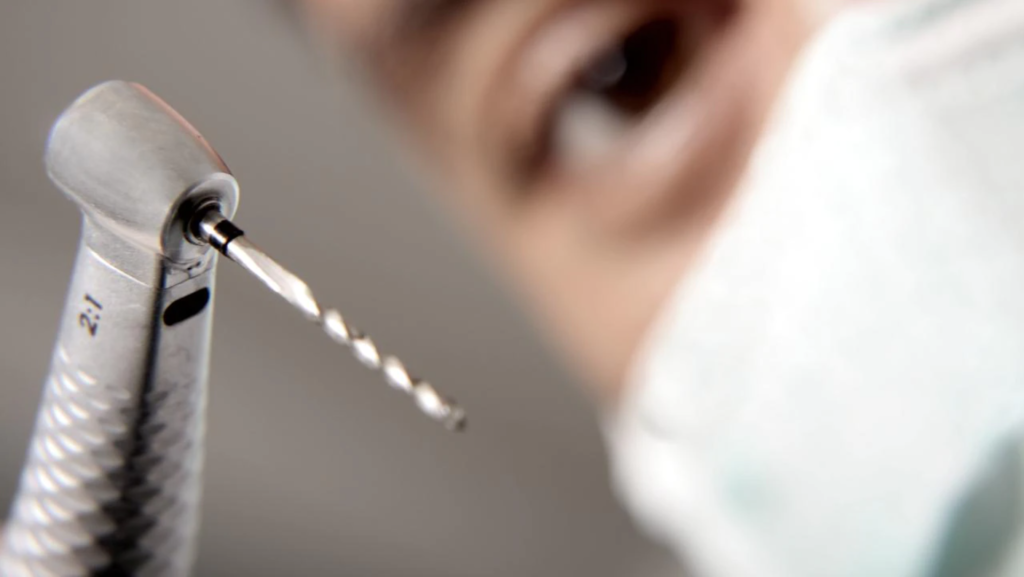Welcome to our blog! Today, we are diving into the world of dental malpractice. It’s essential for both patients and practitioners to understand what dental malpractice is and how it can impact your oral health. In this article, we will explore examples of dental malpractice, common causes, how to prove it in a legal context if necessary, steps you should take if you suspect malpractice has occurred, and valuable tips for avoiding such situations altogether. So let’s protect and promote your dental practice by delving into the realm of dental malpractice together!
Examples of Dental Malpractice
1. Failure to diagnose oral conditions: Imagine visiting your dentist with persistent tooth pain, only to be told it’s nothing serious. Later, you discover that you have a severe infection that could have been prevented if diagnosed earlier. This failure to recognize and treat oral conditions promptly can lead to unnecessary pain and complications.
2. Surgical errors: Oral surgeries require skill and precision. However, mistakes can happen during procedures such as dental implants or root canal treatments. These errors may result in nerve damage, infections, or even the loss of adjacent teeth.
3. Improper administration of anesthesia: Anesthesia is commonly used in dentistry for various procedures like extractions or root canals. However, if administered improperly or without proper monitoring, patients may suffer adverse effects such as allergic reactions, respiratory problems, or even life-threatening complications.
4. Negligence leading to permanent damage: Dentists are responsible for providing adequate care and treatment plans tailored to each patient’s needs. If a dentist fails to do so and this negligence results in permanent damage like tooth loss or misalignment due to improper orthodontic treatment, it could be considered dental malpractice.
5. Infection control breaches: Proper infection control protocols are crucial for maintaining a safe environment within dental practices. Failure to follow these guidelines can lead to the spread of infections such as hepatitis B/C or HIV among patients due to contaminated instruments or poor sterilization practices.
6. Consent violations: Patients have the right to make informed decisions about their dental treatments after understanding all potential risks involved. If a dentist proceeds with treatment without obtaining proper consent from the patient – failing to explain alternative options or potential complications – it can be deemed as dental malpractice.
Remember that these examples serve only as illustrations of potential scenarios; each case is unique when considering whether an incident constitutes dental malpractice.
Common Causes of Dental Malpractice
When you visit a dental professional, you trust that they will provide the highest standard of care. While no one wants to think about a visit to the dentist going wrong, unfortunately, dental emergencies can happen anytime. However, dental malpractice can occur due to various reasons. Let’s take a closer look at some common causes of dental malpractice.
1. Misdiagnosis: One common cause is when a dentist fails to accurately diagnose or detect oral health issues such as cavities, gum disease, or even oral cancer. A misdiagnosis can lead to delayed treatment and further complications.
2. Surgical Errors: During procedures like tooth extractions or root canals, mistakes can happen. These errors may include damaging nearby nerves or tissues, improper administration of anesthesia leading to pain and discomfort for the patient.
3. Medication Errors: Dentists may prescribe medications like antibiotics or painkillers to manage oral health conditions. However, errors in prescribing the wrong dosage or medication altogether can have serious consequences on the patient’s overall health.
4. Inadequate Communication: Poor communication between dentists and patients regarding treatment options, risks involved, and proper post-operative care instructions could also be considered a form of negligence.
5. Lack of Informed Consent: Before any procedure is performed, dentists should obtain informed consent from their patients by explaining all potential risks and alternatives available. Failure to do so may result in legal action if an unexpected outcome occurs.
It is important for both dentists and patients alike to be aware of these common causes of dental malpractice in order to prevent them from happening.
How to Prove Dental Malpractice
Proving dental malpractice can be a complex process, but it is crucial in seeking justice and compensation for any harm caused. To successfully prove dental malpractice, several key elements must be established.
It’s essential to demonstrate that there was a dentist-patient relationship. This means showing that you entered into an agreement with the dentist for their professional services.
It’s important to establish that the dentist breached the standard of care. This involves demonstrating that the dentist failed to provide treatment at the level expected of a competent professional within their field.
To support your claim, gathering evidence is crucial. This may include medical records, x-rays, photographs, testimonies from expert witnesses or other relevant documentation.
Furthermore, proving causation is essential. You must show how the negligence or misconduct of the dentist directly resulted in your injuries or harm suffered.
It’s necessary to demonstrate damages – both economic and non-economic. Economic damages refer to measurable financial losses such as medical expenses and lost wages. Non-economic damages encompass pain and suffering endured as a result of the dental malpractice.
Proving dental malpractice requires meticulous attention to detail and strong supporting evidence. Consulting with an experienced attorney specializing in dental malpractice cases can greatly assist you throughout this challenging process.
Steps to Take if You Suspect Dental Malpractice
If you have a suspicion that you’ve experienced dental malpractice, it’s important to take action promptly. Here are some steps you can take:
1. Collect Evidence: Start by gathering all relevant documents and records related to your dental treatment. This includes dental bills, X-rays, medical notes, and any other evidence that supports your claim.
2. Consult with Another Dentist: Schedule an appointment with another dentist for a second opinion. They can assess your situation and provide their professional perspective on whether there was negligence or malpractice involved in your treatment.
3. Seek Legal Advice: If the second opinion confirms your suspicions of dental malpractice, it may be necessary to consult with a lawyer specializing in medical/dental malpractice cases. They can guide you through the legal process and help protect your rights.
4. Document Everything: Keep detailed records of all conversations, appointments, and interactions related to your potential case of dental malpractice. This will be crucial as evidence if you decide to pursue legal action.
5. File a Complaint: Contact the state board or licensing agency responsible for overseeing dentists in your area to file a formal complaint against the dentist involved in the alleged malpractice incident.
Remember, time is of the essence when dealing with potential cases of dental malpractice! Taking prompt action can help protect both your oral health and legal rights.
Tips for Avoiding Dental Malpractice
While dental malpractice can have serious consequences, there are steps you can take to protect yourself and your dental practice. Here are some important tips to keep in mind:
1. Maintain Clear Communication: Effective communication with your patients is key. Take the time to listen to their concerns, answer their questions, and explain any procedures or treatments thoroughly.
2. Stay Informed and Up-to-Date: The field of dentistry is constantly evolving, so it’s crucial to stay current on the latest research, techniques, and technology. Continuing education courses and professional development opportunities can help ensure that you provide the best quality care.
3. Document Everything: Proper documentation is essential in case of any disputes or allegations of malpractice. Keep detailed records of patient visits, treatment plans, informed consent forms, discussions with patients about potential risks or complications, etc.
4. Follow Standard Protocols: Adhere to established guidelines and protocols in all aspects of your practice – from infection control measures to proper billing practices – ensuring that you provide consistent and safe care for your patients.
5. Obtain Informed Consent: Before performing any procedure or treatment plan, obtain informed consent from your patients after explaining the potential risks involved as well as alternative options available.
6. Seek Second Opinions if Necessary: If you encounter a complex case or find yourself unsure about a diagnosis or treatment plan, don’t hesitate to consult with another reputable dentist for a second opinion.
7. Invest in Professional Liability Insurance: Protect yourself by obtaining professional liability insurance specifically tailored for dental professionals. This coverage can help mitigate financial losses resulting from malpractice claims.
8. Regularly Review Your Practice Policies: Regularly review your practice policies regarding patient safety protocols, documentation practices, and staff training. This helps identify areas that need improvement and ensures compliance with industry standards.
By following these tips diligently, you will not only minimize the risk of dental malpractice but also protect and promote the reputation of your dental practice.



